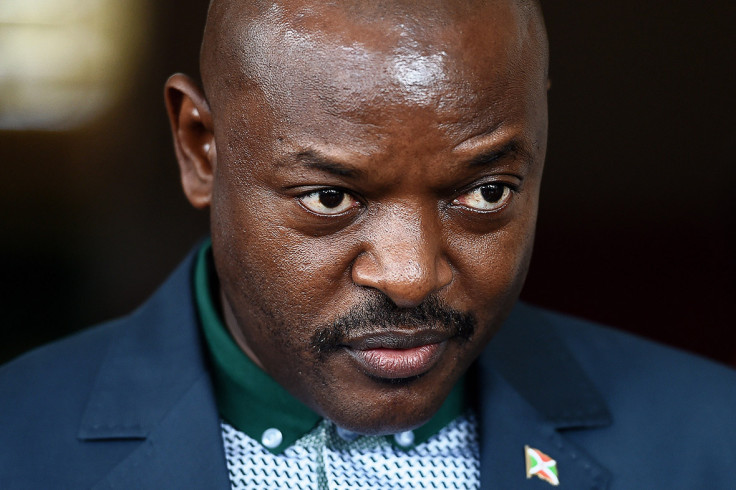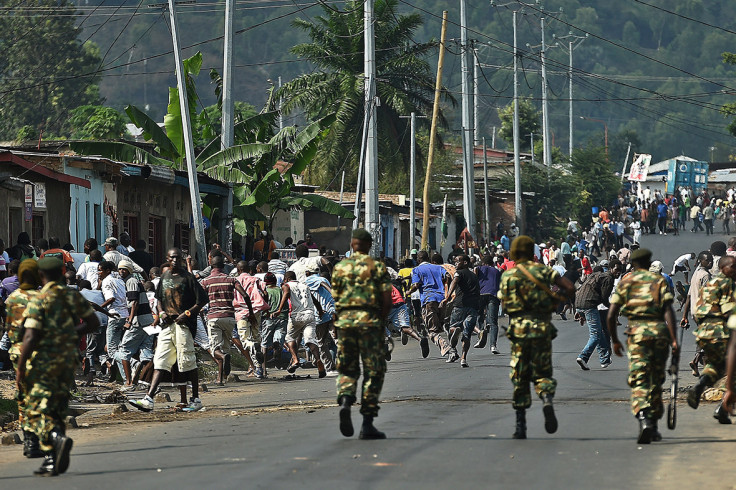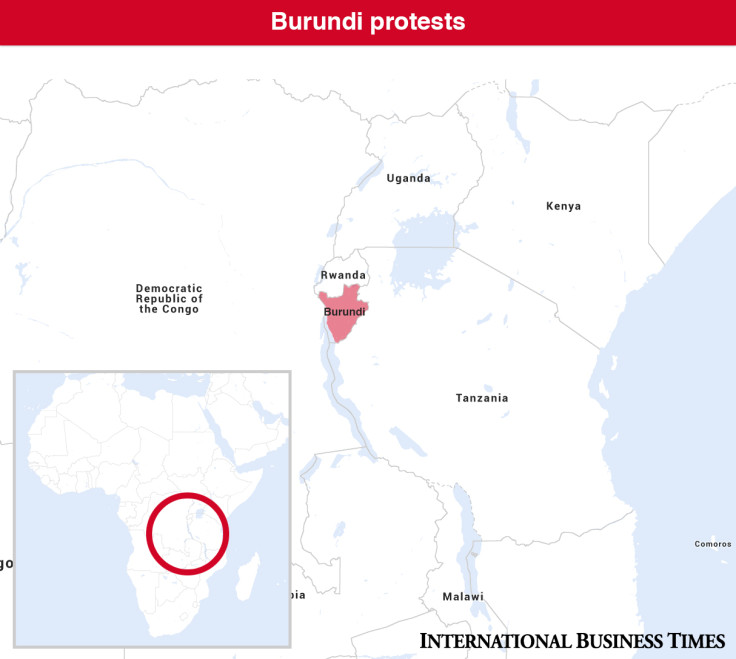Burundi: 'Vote against President Nkurunziza if you want to beat him' says Willy Nyamitwe

Burundi's President Pierre Nkurunziza has signed a decree delaying controversial parliamentary and local council elections, set to take place on 26 May, to 5 June, as the country faces a political crisis.
Protesters who are demanding Nkurunziza withdraw his third-term bid in the upcoming 26 June elections, descended in the streets on 18 May for the first time since a failed coup on 13 May. They accused the president of violating the constitution and the Arusha Peace Agreement, which says Nkurunziza can only stay in power for two terms.
Nkurunziza's supporters argue the president's first term should not be counted as he was chosen by the parliament and not by the people in an election as is specified in the agreement.
'Dialogue with opposition, a positive step'
The president's adviser, Willy Nyamitwe, told IBTimes UK Nkurunziza had decided to delay the elections were threefold.
These include the fact that opposition leaders, East African community heads of state and the United Nations, the African Nation and the European Union "made a request for the elections to be deferred".

"Finally, our CENI (Burundi's electoral commission) proposed that the elections are deferred for about 10 days. They will now happen on 5 June," Nyamitwe said over the phone on 20 May from Bujumbura.
The president signed the decree, which officially sets the date for the elections, on 19 May.
He added: "This means the electoral campaign is also extended, until 2 June. Those who haven't had the time to lead their campaign can now organise themselves and complete this task successfully."
While the government has been in talks with opposition leaders, the adviser says the subject of the discussions are not to be made public.
He said: "It's already a positive thing that we are at least entering a dialogue. For now, these talks stay between us."
No decision regarding presidential elections
When asked whether the government had taken a similar decision regarding the controversial presidential elections due to take place on 26 June, the adviser explained the "presidential election has not yet been convened".
He said: "First, electors are summoned for the parliamentary and local council elections, then they will be convened for the presidential elections. That's not yet the case, it's the way it works."
"If opposition leaders and supporters want to beat him because you don't want him to govern you, then you need to go to the polls and vote against him. It is that simple."
- Willy Nyamitwe
The next step in the crisis, the adviser said, is "people need to go to the polls", and "political leaders who were in the streets must leave the streets, and instead lead their electoral campaigns".
Speaking about the decision by ruling party CNDD-FDD to nominate Nkurunziza for the presidential elections, Nyamitwe said: "It is our party's decision, not his. If you [opposition leaders and supporters] want to beat him because you don't want him to govern you, then you need to go to the polls and vote against him. It is that simple."
Investigating media responsibility in coup
On 19 May, directors of news group IWACU announced they were planning to resume its work, after been closed for five days following the failed coup.
Following the press conference, Nyamitwe told IBTimes UK the government agreed that the media group should re-open soon but stressed a number of conditions should be respected.
"We will wait for the investigation to know what happened and the responsibilities of each one in the coup," he said, referring to an investigation launched on 19 May by the country's Interior Ministry. "The culprits will be punished according to the law."

© Copyright IBTimes 2024. All rights reserved.






